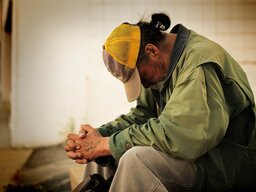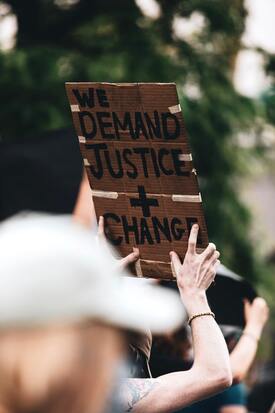
The U.S. middle class, which once comprised the clear majority of Americans, is shrinking. Thus, a greater share of the nation’s aggregate income is now going to upper-income households and the share going to middle- and lower-income households is falling.
COVID-19 is having a clearly disparate impact on the Black community.

This is largely due to environmental, economic and political factors that have compounded for generations, putting Black people at higher risk of chronic conditions that leave lungs weak and immune systems compromised: asthma, heart disease, hypertension and diabetes. Redlining and environmental racism, for example, have consigned Black neighborhoods to breathing some of America’s dirtiest air, drinking contaminated water, and living in food deserts.
The current recession is hitting women harder than men. According to Forbes, “Women feel the economic downturn more acutely than men. Even among women, there are disproportionate effects by race, ethnicity age and marital status. Those groups of women, who have experienced the sharpest labor market downturn, also tend to be the ones most financially vulnerable. The recession illustrates systematic differences that often stem from outright gender discrimination, resulting in fewer and worse job opportunities than is the case for men. They often work for low pay with few benefits and thus have few savings and cannot rely on a spouse’s earnings to help them pay their bills. In addition, many women, especially women of color, are the primary breadwinners in their families. The disproportionate job losses among women, especially women of color, will not mean hardship for families such as hunger right now, but that pain will persist for a long time, even if jobs return in the near future.”
In poor countries, the pandemic has wrecked fragile economies already burdened by debt, overreliance on extractive projects, and unjust trade agreements. Millions of people have been pushed into extreme poverty. As in the 2009 swine flu pandemic, rich countries may well crowd out poor countries for access to vaccines. The poor countries will receive the vaccines later and will be unable to cover many of their citizens.
We need to respond to this crisis with a long-term commitment to support workers, state governments, and small businesses. As a matter of justice, we need to focus our help on those workers and communities of color who are bearing the brunt of the crisis.
The economic pain is not evenly shared. In 1980, the wealthiest one percent garnered 10 percent of the national income. Today they amass 20 percent! Rather than focus on this issue, the Administration is attempting to dismantle the Affordable Care Act which would leave people with nowhere to turn.
- proposals for closing the wealth gap;
- plans for a national paid family/sick leave program;
- plans to ensure that all U.S. residents have access to quality, affordable healthcare; and
- assistance to impoverished countries


 RSS Feed
RSS Feed